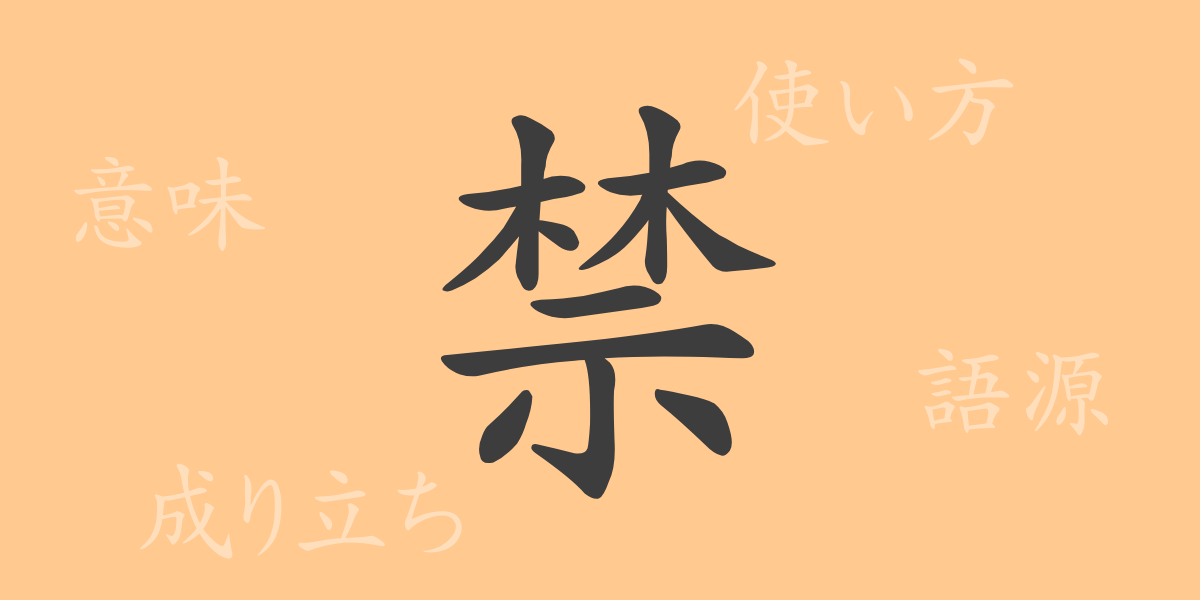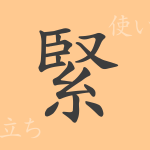In Japanese, there are symbolic characters that represent emotions, actions, and societal norms. Among them, “禁(きん)” is one of the important kanji characters deeply connected to our daily lives. This article explores “禁(きん)” from its origins to its meanings, usage, and the idioms and proverbs associated with it. Although we see it often, we may not know much about this character. Let’s delve deep into the details of “禁(きん).”
Origin of 禁(きん) (Etymology)
The kanji “禁(きん)” originates from ancient Chinese characters. Originally, it combined “林(りん)” (forest) with “示(しめす)” (to show), symbolizing “forbidding entry into a sacred forest.” Over time, “禁(きん)” evolved to mean “prohibition” or “restriction” and has been widely used in kanji-using cultures, including Japan.
Meanings and Uses of 禁(きん)
The kanji “禁(きん)” means “to forbid” or “to prohibit,” used to restrict or stop certain actions. It is often used in legal, regulatory, and moral contexts to denote the prohibition of specific behaviors. Examples include words like “禁煙(きんえん)” (no smoking) and “禁止(きんし)” (prohibition).
Readings, Stroke Count, and Radical of 禁(きん)
The kanji “禁(きん)” is a commonly used character in various contexts in Japan.
- Readings: The on’yomi (Chinese reading) is “キン(きん),” and the kun’yomi (Japanese reading) is “と.める.”
- Stroke count: 13 strokes
- Radical: 示(しめすへん) (altar)
Idioms, Phrases, and Proverbs Using 禁(きん)
There are many idioms, phrases, and proverbs in Japanese that include “禁(きん).” Here are a few examples:
- 禁煙(きんえん): Prohibition of smoking.
- 禁止(きんし): Prohibition of certain actions.
- 禁忌(きんき): Taboo actions or words.
- 禁句(きんく): Words or expressions that are forbidden to be spoken.
- 禁輸(きんゆ): Prohibition of exporting or importing goods.
These expressions are often used in contexts related to societal norms and individual behavior.
Conclusion on 禁(きん)
The kanji “禁(きん)” has been deeply rooted in people’s lives and cultures from its formation to the present day. Representing concepts of prohibition and restriction, this kanji is essential for maintaining social order through laws, ethics, and customs. As a common kanji in Japanese, we encounter “禁(きん)” daily, yet we might not often reflect on its background and meaning. This article provides an opportunity to recognize the significant role “禁(きん)” plays and its usage in the Japanese language.

























